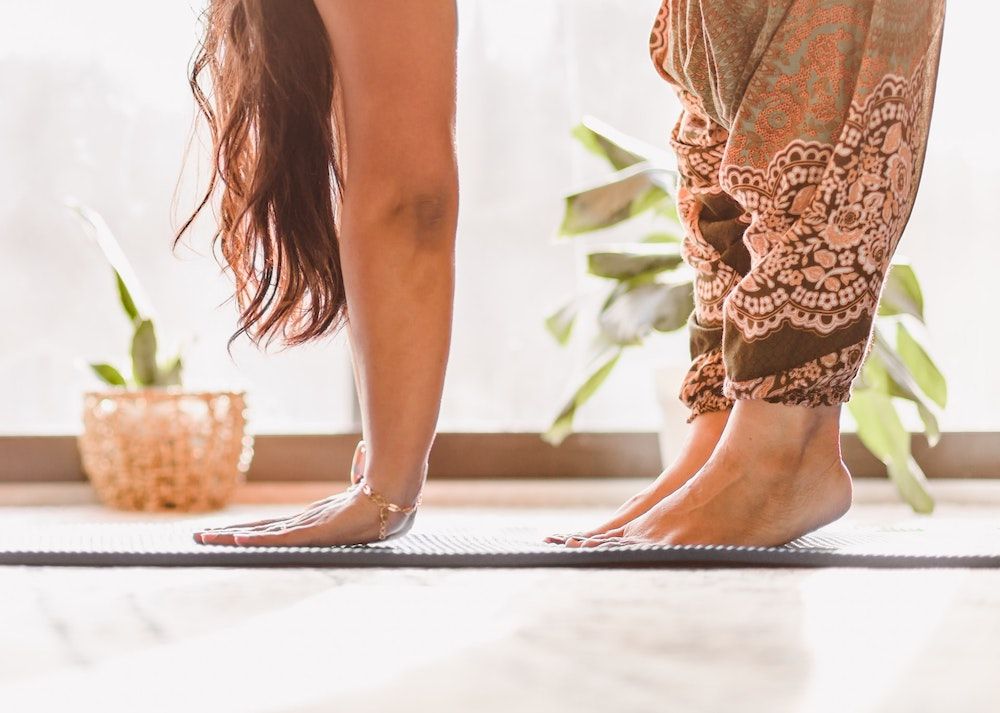
The pandemic has added extra stress to all our lives, and for those with anxiety disorders the last year has been particularly gruelling. Here, we suggest some effective measures to help you navigate these difficult days
Brain fog, restlessness, feeling constantly on edge, and that pit of dread in your stomach – with one in four of us in the UK experiencing a mental health problem of some kind each year, you may be familiar with these symptoms of anxiety. In fact, one in six people report experiencing a common mental health problem, like anxiety and depression, in any given week. Generalised anxiety disorder (GAD), obsessive compulsive disorder (OCD), phobias, and eating disorders, are other anxiety or related disorders that many people live with on a daily basis.
These are difficult enough to manage normally, but the pandemic has added another layer of stress, which has exacerbated the anxiety disorders that some are struggling with, and triggered a relapse in others. Therapy is often the long-term solution to manage and overcome anxiety, but what about day-to-day? Here are 10 tips for managing anxiety in the moment.
1. Distraction
Putting your mind to something that will require your concentration can distract your brain from blaring out such loud warning signals. The more focus that goes into doing something else, the less brain power goes towards making you feel anxious. It won’t be easy, as your brain will want to bring your attention back to the threat it thinks is at hand, but keep trying to bring your focus back to your chosen activity.
I find that activities that require your body to be engaged as well as your mind – such as puzzles, a walk with a friend, gardening, painting, or playing an interactive game on a games console or phone – are the most effective. Hands-on examples can work especially well, because moving can help with anxious energy, and having your hands busy, as well as your mind, can work as further distraction.

2. Changing the emotion
Doing things that evoke different emotions to the ones we are experiencing can help change negative feelings. We often listen to angry music when we feel that emotion, but this can sometimes reinforce the anger rather than release it. So, instead of spending time reinforcing anxiety – for example, someone with health anxiety may spend time researching symptoms of illness – spend time doing things that evoke positive emotions in you, such as watching a comedy show, chatting to a friend about something good that happened to you recently, or reading a book that gets you entirely lost in that world.
3. Change your environment
Shaking up what’s around you, can bring you out of the environment that you associate with anxiety, and help change the way you feel. You could try going to an imaginary safe place in your head (with or without the aid of a meditative app or video), going to a place in your house where you feel most safe (e.g. under the blanket on the sofa), taking yourself for a brief calm walk, going to a friend’s house (restrictions permitting), or inviting a friend to yours to keep you company.
4. Relax your body
Tensing up is a natural reaction to anxiety and stress, which signals to your body that you are in danger. The more we tense up, the more the anxiety is reinforced. It might be easier said than done, but try to relax. Let your shoulders drop. Lean back into a sofa, or lie down on the bed. Unclench your muscles one at a time, starting with your jaw and tongue, to your shoulders, and then moving down the rest of your body. This signals to your brain that you are not in danger, and therefore can decrease anxiety.
5. Eat regular meals
During a particularly bad period of anxiety, I often forgot to eat because the feeling was so overwhelming that it was repressing my hunger cues. What I did notice was that when I would eventually eat, my anxiety lessened somewhat. Being hungry is just another red flag for your body that something bad is happening, and heightens discomfort and anxiety. You may feel like you’re not hungry, but you need to ensure you are eating enough, and regularly. A nourished body is a more comfortable one. It’s also advisable to avoid caffeine and alcohol as these can aggravate anxiety.

6. Exercise
When we feel anxious, our body is primed for fight or flight, and releases the stress hormones cortisol and adrenaline. This can cause elevated blood pressure, a racing heart, and sweating. Exercise can help us burn off the negative energy that, in our more primitive days, would have been used either fleeing, or fighting, a threat. You could take a brisk walk, put on your running shoes and hit the tarmac, or jump around to an aerobics video or your favourite music in your living room.
7. Buy a CBT workbook
“Cognitive behavioural therapy is recognised for its structured and practical approach when dealing with issues that might be overwhelming,” says therapist and trauma specialist Magdalena Stanek.
“This type of counselling model breaks the problem into five main areas: situations, physical sensations, emotions, thoughts, and actions, which all connect to each other. For example, with anxiety you can focus on talking about situations that cause you to feel anxious, how that affects the way you think about yourself and the world, then also linking it to the way you behave. This type of analysis can help people to realise the root cause of the current issue, as it targets the ‘here and now’ and sets specific goals to eventually overcome difficulties.”
The pandemic has meant that face-to-face therapy has been disrupted, but a lot of counsellors offer phone or virtual sessions as an alternative. If you’re waiting for an in-person appointment – or if you aren’t ready to try therapy right now – you could buy a CBT workbook and go through it yourself. You can then refer back to what you’ve learned when anxiety is threatening to overcome you.
8. Feel the fear and do it anyway
Having recovered from an eating disorder, and managing other anxiety disorders, I know that to stop the brain perceiving things as a threat, you have to show it that they aren’t by exposing yourself to those things, over and over, until it gets less scary every time. Avoiding situations that make us anxious only reinforces that feeling, often leading to ever-increasing anxiety. We can’t overcome our fears without facing them. Just ensure you know the difference between discomfort and distress: push yourself, but not too much.
9. Ice diving
Simply fill a bowl with ice, and put your face in it. This lowers blood pressure, heart rate, and body temperature – which helps with distressing emotions, and reduces anxiety.
“When you are in freezing water, your body needs to save energy to survive,” says Magdalena. “So it will slow down or shut functions that aren’t crucial. Emotions are not essential, so they will gently dissipate.”
If you have a heart or other medical condition, it’s best to consult a healthcare provider before trying this technique.
10. Look at the evidence
One day, when I was alone in my flat and feeling overwhelmed by anxiety, I called my mum. She asked if I had felt this way before, to which I replied that I had. She asked me what happened. The answer was: nothing. I didn’t die, and the anxiety did end.
This conversation is something that I always think about if my anxiety ever gets to a point where it feels overpowering. Use the evidence. If you’re worried about dying in a plane crash, think about how many people actually die this way (spoiler: not a lot). If you have a headache, and worry that it might be cancer, think about how likely that is. If you are convinced you are about to die, ask yourself if you’ve felt this way before and if you survived.
Anxiety is hard to beat, but we must try to understand that we cannot control everything, or plan for every eventuality. Remember that you don’t have to suffer alone, and it’s important to reach out when you need help.
To learn more about managing anxiety, or connect with a counsellor like Magdalena visit counselling-directory.org.uk


